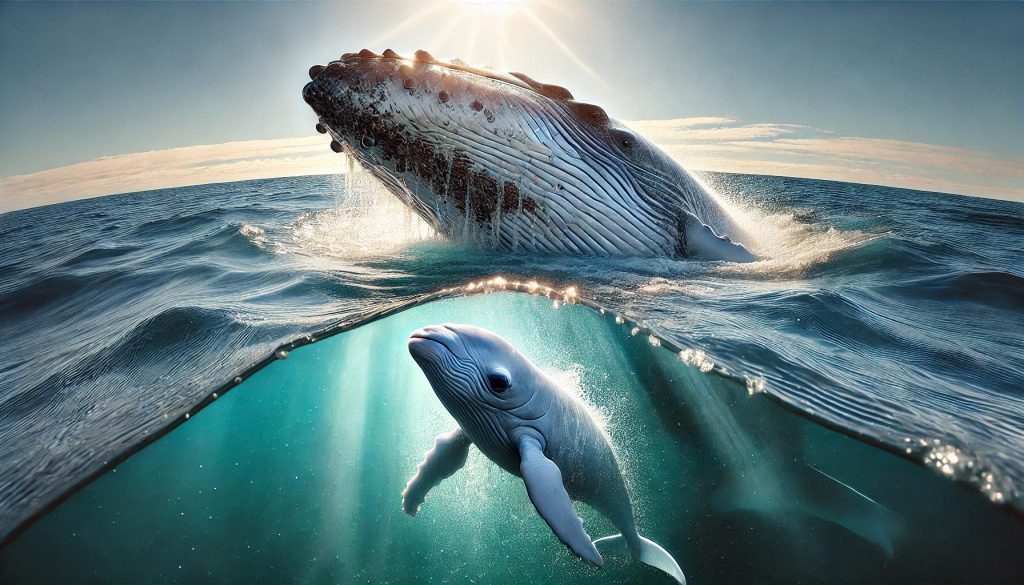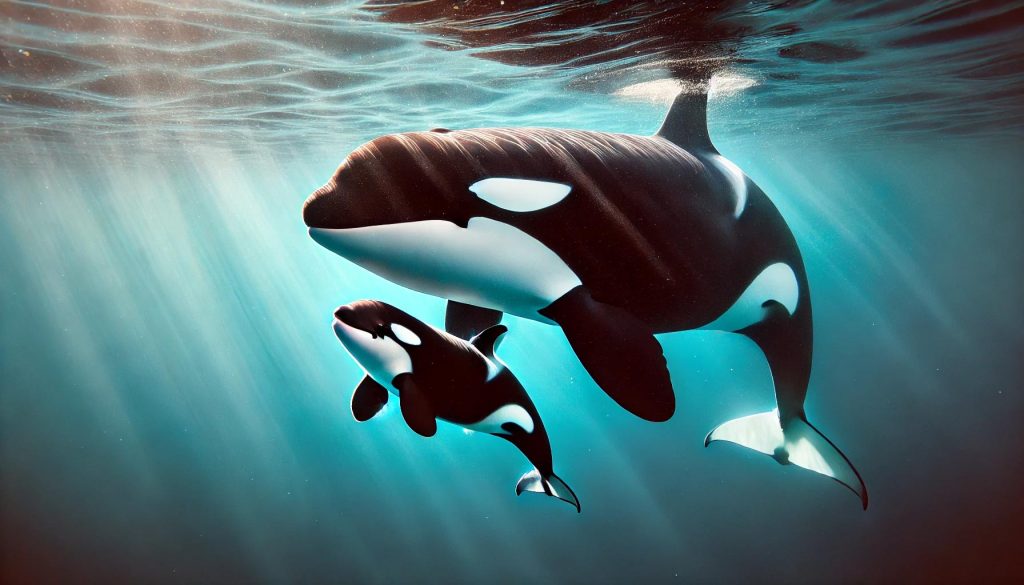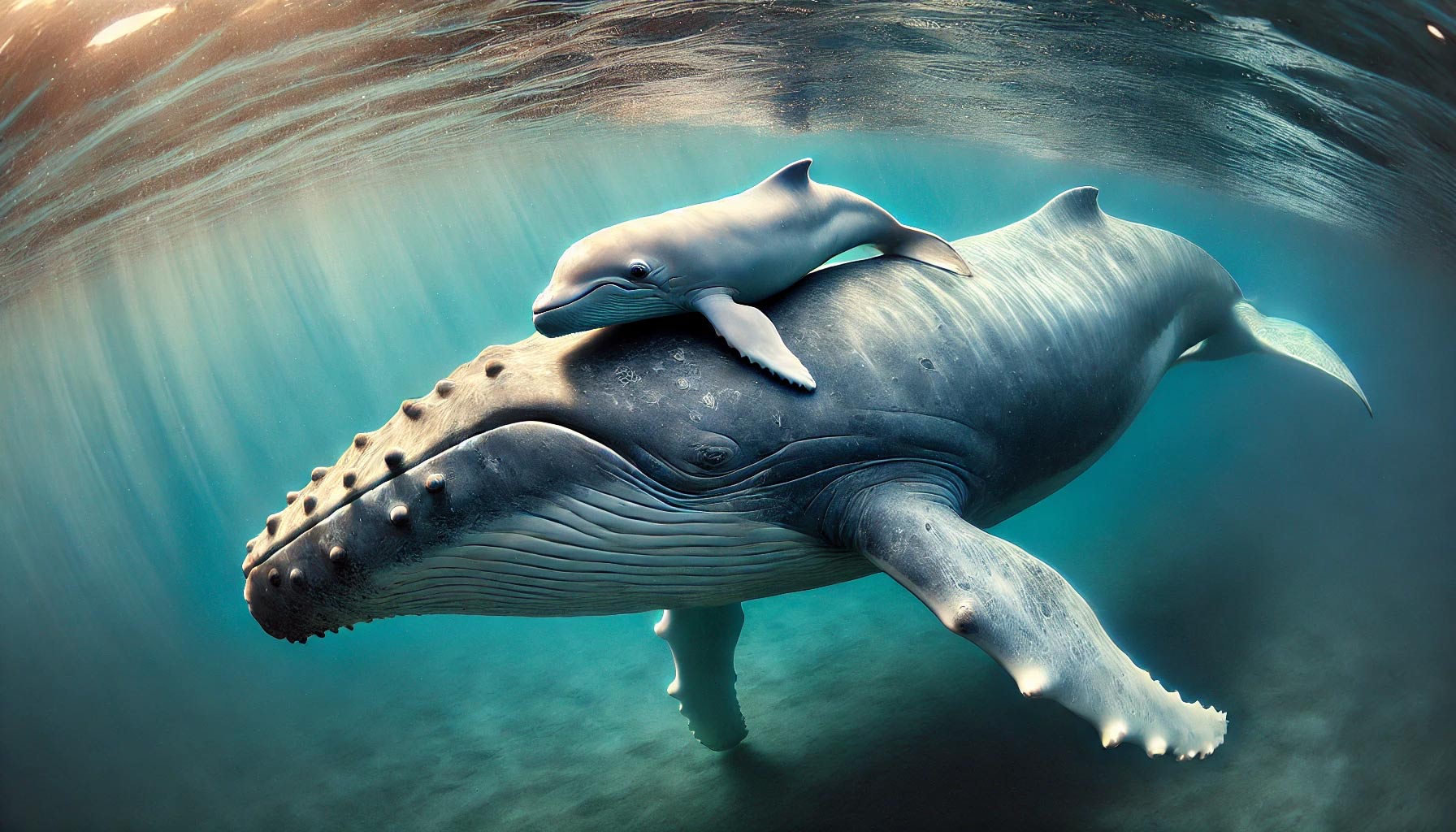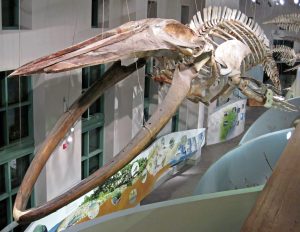Short Anser: A baby whale stays with its mother varies by species, but can range from six to seven months to up to two years.
Whales are fascinating creatures, not just for their sheer size and majesty but also for their complex social behaviors and family structures. One of the most intriguing aspects of whale life is the bond between a mother and her calf. This maternal connection is crucial for the calf’s survival, and the duration of this bond varies among different whale species. Let’s dive into the captivating world of whale motherhood and explore how long baby whales stay with their moms.
How Do Mother Whales Treat Their Babies?

Mother whales are incredibly nurturing and protective of their calves. From the moment of birth, a mother whale’s primary focus is ensuring the safety and well-being of her baby. She helps the calf reach the surface for its first breath, provides nourishment through rich milk, and teaches vital survival skills. This period of intense care is essential for the calf’s development, as it learns to navigate the vast ocean, find food, and avoid predators. The bond between a mother whale and her calf is a remarkable display of the nurturing nature of these gentle giants.
How Long Do Sperm Whale Calves Stay with Their Mother?
Sperm whale calves have a notably extended period of dependency on their mothers. These calves typically stay with their mothers for about 8 to 10 years. During this time, the mother provides continuous care, teaching her calf how to dive deep for food and socializing it within the pod. This long period of maternal care is crucial for the calf to develop the skills needed to survive in the deep ocean. Sperm whales are known for their deep-diving capabilities, and the prolonged maternal guidance ensures that the calves are well-prepared for the challenges of their underwater world.
How Long Do Baby Orcas Stay with Their Mothers?

Orcas, or killer whales, are known for their strong family bonds, which are among the longest in the animal kingdom. Baby orcas, also known as calves, stay with their mothers for life. In orca pods, family ties are incredibly strong, and mothers, daughters, and sons often stay together throughout their lives. The social structure of orcas is matriarchal, meaning that older females play a crucial role in the pod. This lifelong bond ensures that knowledge, hunting techniques, and social behaviors are passed down through generations, creating a tight-knit and resilient family unit.
What Animal Stays with Its Mother the Longest?
Among all animals, the orca, or killer whale, holds the record for staying with its mother the longest. Unlike many other species where offspring eventually leave to start their own families, orcas maintain their familial bonds throughout their lives. This extended maternal connection is not just a display of social complexity but also an adaptive strategy that ensures the survival and prosperity of the pod. The continuity of care and shared knowledge among orcas is unparalleled in the animal kingdom, highlighting the unique nature of these majestic marine mammals.
The Importance of Maternal Bonds in Whale Species
The extended maternal care observed in whales highlights the importance of family structures in the animal kingdom. These bonds are essential for the calves’ survival, providing them with the necessary skills and protection during their vulnerable early years. The nurturing nature of mother whales and the strong family ties seen in species like orcas and sperm whales demonstrate the critical role of maternal care in the ocean’s ecosystem. This enduring connection between mother and calf is a testament to the intricate social behaviors and deep emotional bonds that characterize whale societies.
In conclusion, the bond between a mother whale and her calf is a vital aspect of whale life, ensuring the survival and well-being of the next generation. From the nurturing care of sperm whales to the lifelong bonds of orcas, these maternal relationships are a testament to the incredible social structures and behaviors of whales. Understanding these bonds not only deepens our appreciation for these magnificent creatures but also underscores the importance of protecting their habitats and ensuring their survival for future generations.


